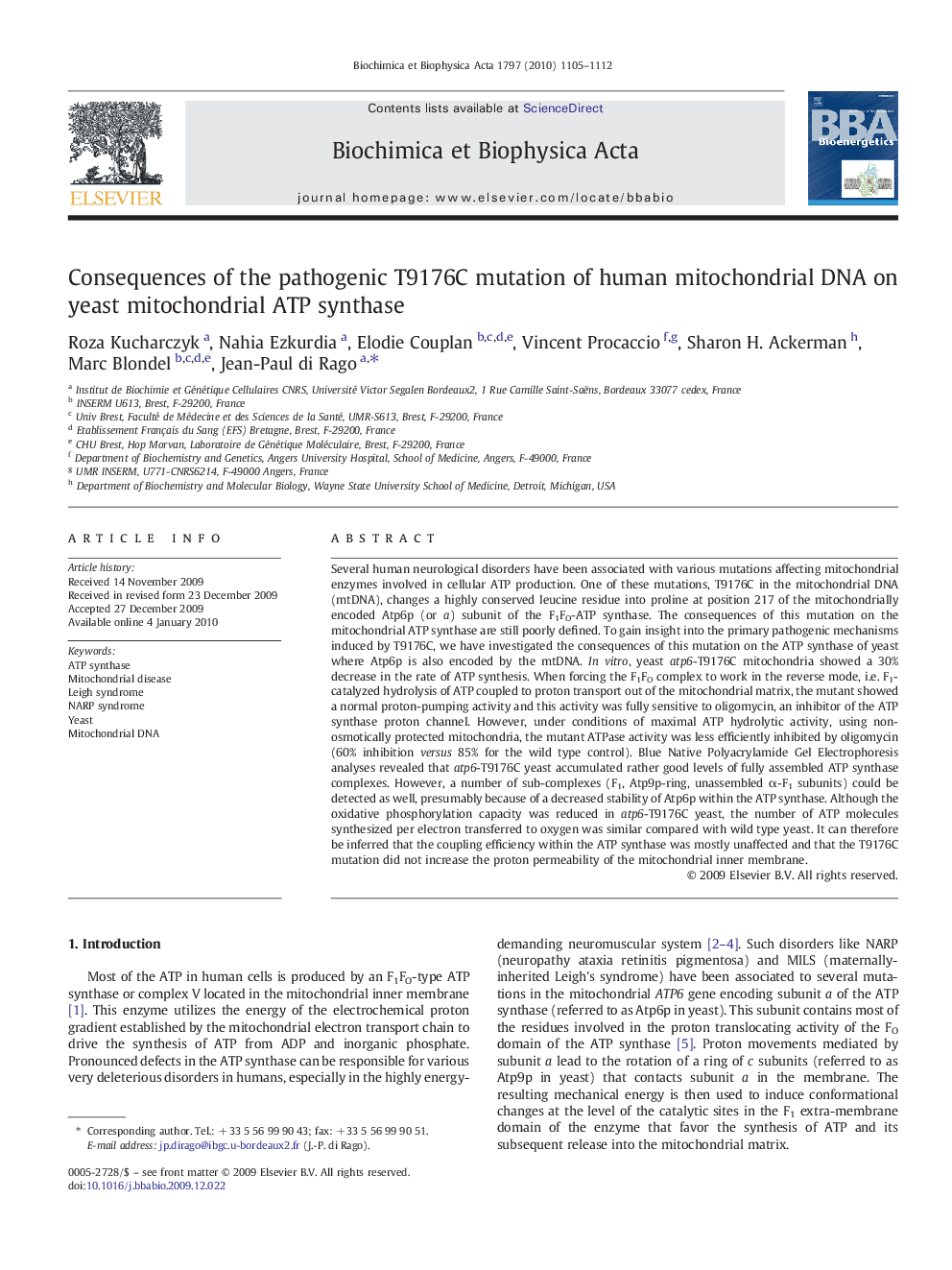| Article ID | Journal | Published Year | Pages | File Type |
|---|---|---|---|---|
| 8298965 | Biochimica et Biophysica Acta (BBA) - Bioenergetics | 2010 | 8 Pages |
Abstract
Several human neurological disorders have been associated with various mutations affecting mitochondrial enzymes involved in cellular ATP production. One of these mutations, T9176C in the mitochondrial DNA (mtDNA), changes a highly conserved leucine residue into proline at position 217 of the mitochondrially encoded Atp6p (or a) subunit of the F1FO-ATP synthase. The consequences of this mutation on the mitochondrial ATP synthase are still poorly defined. To gain insight into the primary pathogenic mechanisms induced by T9176C, we have investigated the consequences of this mutation on the ATP synthase of yeast where Atp6p is also encoded by the mtDNA. In vitro, yeast atp6-T9176C mitochondria showed a 30% decrease in the rate of ATP synthesis. When forcing the F1FO complex to work in the reverse mode, i.e. F1-catalyzed hydrolysis of ATP coupled to proton transport out of the mitochondrial matrix, the mutant showed a normal proton-pumping activity and this activity was fully sensitive to oligomycin, an inhibitor of the ATP synthase proton channel. However, under conditions of maximal ATP hydrolytic activity, using non-osmotically protected mitochondria, the mutant ATPase activity was less efficiently inhibited by oligomycin (60% inhibition versus 85% for the wild type control). Blue Native Polyacrylamide Gel Electrophoresis analyses revealed that atp6-T9176C yeast accumulated rather good levels of fully assembled ATP synthase complexes. However, a number of sub-complexes (F1, Atp9p-ring, unassembled α-F1 subunits) could be detected as well, presumably because of a decreased stability of Atp6p within the ATP synthase. Although the oxidative phosphorylation capacity was reduced in atp6-T9176C yeast, the number of ATP molecules synthesized per electron transferred to oxygen was similar compared with wild type yeast. It can therefore be inferred that the coupling efficiency within the ATP synthase was mostly unaffected and that the T9176C mutation did not increase the proton permeability of the mitochondrial inner membrane.
Related Topics
Life Sciences
Agricultural and Biological Sciences
Plant Science
Authors
Roza Kucharczyk, Nahia Ezkurdia, Elodie Couplan, Vincent Procaccio, Sharon H. Ackerman, Marc Blondel, Jean-Paul di Rago,
